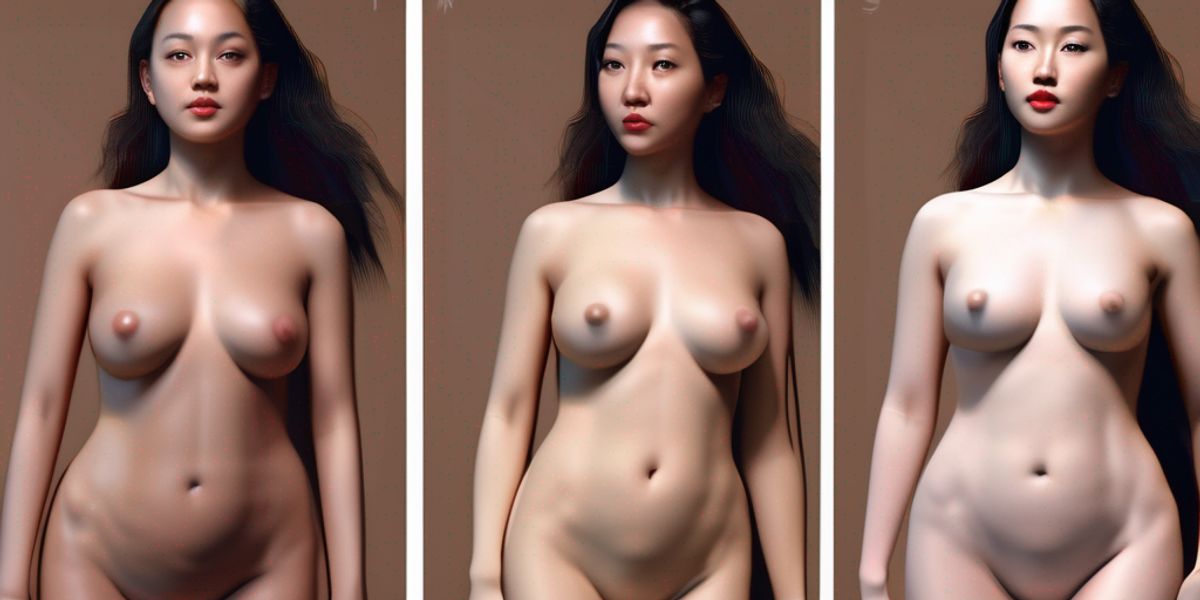
AI That Undresses People: Addressing the Privacy and Ethical Challenges
Nudify.Online, a cutting-edge web application, leverages sophisticated AI technology to digitally remove clothing from images, presenting numerous privacy and ethical challenges. This exploration delves into the capabilities of such technology, its legal implications, ethical concerns, societal impacts, and the future of AI ethics.
Key Takeaways
- Nudify.Online uses advanced AI to alter images, which can lead to significant privacy violations without proper safeguards.
- There are currently insufficient laws and regulations to fully address the challenges posed by clothes-removing AI.
- Ethical concerns include consent issues and the potential misuse of AI to harm individuals’ reputations and safety.
- The societal impact is profound, affecting social norms around privacy and increasing the need for secure AI practices.
- Future directions should focus on enhancing AI ethical standards and developing robust legal frameworks to protect individuals.
Understanding Nudify.Online: Capabilities and Technology

How Nudify.Online Works
Nudify.Online is an advanced web-application that utilizes sophisticated AI algorithms to digitally remove clothing from images. This technology leverages deep learning models trained on vast datasets to recognize and manipulate human figures in photographs.
Technological Advancements in AI
The AI behind Nudify.Online represents a significant leap in image processing capabilities. It incorporates cutting-edge techniques in neural networks, particularly in the realm of generative adversarial networks (GANs), which are crucial for realistic image synthesis.
The Scope of Image Alteration
Nudify.Online can alter images in a manner that is nearly indistinguishable from the original to the untrained eye. This capability raises important questions about the limits and controls of such technology, especially in terms of personal privacy and security.
Legal Implications of AI That Undresses Images

Current Laws and Regulations
The legal landscape surrounding AI technologies like Nudify.Online is complex and varies by jurisdiction. Most countries lack specific laws that directly address the creation and distribution of AI-generated undressed images, often relying on broader privacy and obscenity laws to govern such cases.
Potential Legal Reforms
To address the unique challenges posed by clothes-removing AI, legislative bodies are considering reforms. These may include stricter penalties for unauthorized use and clearer definitions of digital consent. A proactive approach could involve:
- Establishing clear legal frameworks
- Defining consent in digital contexts
- Enhancing penalties for misuse
International Law Considerations
The global nature of the internet complicates enforcement of laws against AI that undresses images. International cooperation is crucial for effective regulation. Key areas for collaboration include:
- Harmonization of privacy laws
- Cross-border data protection agreements
- Joint efforts in AI monitoring
Ethical Concerns with Clothes-Removing AI

Privacy Violations
The use of AI technologies like Nudify.Online to undress digital images of individuals without their consent poses significant privacy violations. This technology can be exploited to create nonconsensual nude images, leading to personal distress and potential public humiliation.
Consent and AI
Consent is a fundamental aspect of ethical AI usage. Technologies that alter images to undress individuals without explicit permission challenge the very notion of consent, raising questions about the autonomy and rights of individuals in the digital age.
The Moral Boundaries of AI Use
Determining the moral boundaries of AI applications is crucial. The capability of AI to manipulate personal images, as seen with tools like Huawei’s Pura 70 AI object removal feature, sparks a debate on the ethical limits of technology. It is essential to establish clear guidelines that prevent misuse while promoting beneficial innovations.
Impact on Society and Individual Privacy

Social Perception of Privacy
The introduction of AI technologies capable of undressing images has significantly altered the social perception of privacy. Public trust in digital platforms is eroding, as individuals fear the misuse of their personal images without consent. This shift is prompting a broader discussion on the boundaries of privacy in the digital age.
Effects on Personal Security
The capability of AI to manipulate images can lead to severe personal security issues. For instance, the creation of non-consensual explicit content can damage reputations, affect mental health, and even jeopardize physical safety. The societal impact of deep nude technology is significant, raising urgent questions about privacy, consent, and the ethical use of AI.
Public Reaction and Backlash
The deployment of clothes-removing AI has sparked widespread backlash. Public campaigns and protests are increasingly common, as people demand stricter regulations and transparency in AI development. The controversy underscores the need for robust ethical frameworks and legal protections to safeguard individual rights in the face of advancing technology.
Technological Safeguards and User Control

User Consent Mechanisms
To address privacy concerns, user consent mechanisms are crucial. These systems ensure that users are fully aware and agree to the processing of their images by AI technologies. Implementing clear and accessible opt-in forms, along with detailed user agreements, can safeguard user rights and enhance trust.
AI Monitoring and Regulation
Effective AI monitoring and regulation are essential to prevent misuse and ensure ethical use of technology. Governments and regulatory bodies need to establish stringent guidelines and continuous oversight to maintain control over AI applications like Nudify.Online.
Secure AI Practices
To protect user data and prevent unauthorized access, secure AI practices must be implemented. This includes using encryption, secure data storage solutions, and regular security audits. Ensuring robust security measures will help in maintaining the integrity and confidentiality of user data.
Future Directions in AI and Ethics

Evolving Ethical Standards
As AI technologies continue to permeate various sectors, the evolution of ethical standards becomes paramount. The integration of ethical considerations in AI development is crucial for ensuring that technology advances do not outpace moral frameworks. This involves continuous updates to ethical guidelines and more robust ethical training for AI professionals.
Innovations in Responsible AI
The push towards more responsible AI is marked by innovations that prioritize transparency, accountability, and fairness. These innovations often involve developing new algorithms that can explain their decisions and processes, making AI systems more understandable to users.
Predicting Future Legal Challenges
The dynamic nature of AI technology means that legal frameworks must adapt swiftly. Predicting these challenges involves understanding the trajectory of AI capabilities and their societal impacts. This foresight can help in crafting laws that are both effective and fair, ensuring that AI benefits society while minimizing harm.
Conclusion
The advent of AI technologies like Nudify.Online, which can digitally remove clothing from images, presents significant privacy and ethical challenges. As we navigate this new terrain, it is crucial to establish robust legal frameworks and ethical guidelines to protect individuals’ privacy and dignity. The potential for misuse of such technologies is high, and proactive measures are necessary to prevent harm. Engaging in open dialogues, conducting thorough impact assessments, and ensuring transparency in AI development and deployment are essential steps towards safeguarding our societal values while embracing technological advancements.
Frequently Asked Questions
What is Nudify.Online?
Nudify.Online is an advanced web-application that uses AI technology to digitally remove clothes from images of people. It utilizes the latest advancements in clothes-removing AI as of 2024.
How does Nudify.Online work?
Nudify.Online employs sophisticated AI algorithms to analyze and modify images by detecting human figures and digitally erasing clothing, rendering an image of the person without clothes.
Is it legal to use Nudify.Online?
The legality of using such technology varies by country and region, depending on local laws regarding privacy, digital content manipulation, and decency standards.
What are the ethical concerns associated with Nudify.Online?
Key ethical concerns include privacy violations, lack of consent from individuals whose images are altered, and potential misuse for harassment or other harmful purposes.
Can users control how their images are used on Nudify.Online?
As of now, it’s unclear what mechanisms, if any, are in place on Nudify.Online to ensure user consent and control over image manipulation.
What future developments are expected in AI ethics related to applications like Nudify.Online?
Future directions may include stricter regulations, enhanced consent mechanisms, and innovations in AI that prioritize ethical standards and privacy protection.



